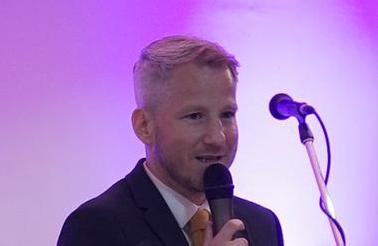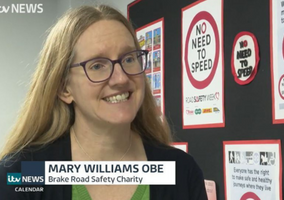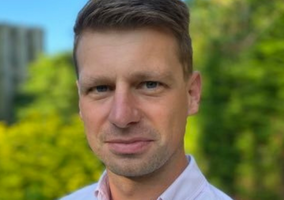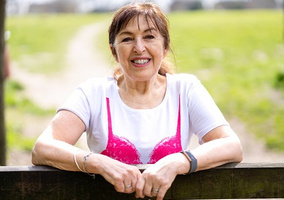Last November, after I shared my plans to step aside from the organisation that I founded and have led for 12 years, a colleague asked me: “When did you first start planning your departure?”
The context behind the question was clear: as the founder and chief executive, I have been so completely interwoven with the Cares Family for nearly a third of my life that some people had started to think we could never be separated.
It’s easy to understand how this view might arise. I had done every job in the organisation as it grew. In the early days, I knocked on thousands of doors in the snow to bring older and younger people into our community, and then carted trolley bags laden with custard cremes down busy high streets towards intergenerational dance parties that only three people showed up to.
Afterwards, I stayed up till the wee hours writing and re-writing concept notes that would bring new people and new partners on board. Over time, I worked with those partners to replicate our little charity in other places around the UK – staying night after night in cheap hotels, leading the recruitment of 100 staff over a decade, even taking ownership of the types of questions we asked in evaluations.
And then, in March 2020, I sobbed alone and desolate as I feared suspending face-to-face activities in the maelstrom of a pandemic would mean we might never be able to bring them back again.
Many of us are addicted to the job
Founders tend to be deeply involved in their missions, often uniquely personally motivated, and some find it hard to let go. It is their energy and their passion that give life to organisations.
But putting that much in takes sacrifice, and I’ve written before about the burnout (and burn-in) of working endless 100-hour weeks, and about the feelings of responsibility and expectation, accountability and imposter syndrome that go with leading social change. Many of us are addicted to the job. There were times when my addiction left me feeling deeply isolated and lonely myself.
But while leadership can be a burden, it is also a privilege. I’ve always believed that the role of the leader is to build something and then to hand it onto others. One of the mottos that I’ve shared so often with colleagues over these past 12 years has been “delegate, elevate” because ideas grow when people from different backgrounds can adopt them and adapt them as their own, and when that creates the space for new thinking.
Knowing when it’s time to move on
It was with this in mind that I told the Cares Family board in January 2022 that I planned to step aside as CEO by summer 2023. A flurry of considerations followed. I worked with a friend to think about the metrics that would eventually signal that I could move on. I was looking for four key indicators to be flashing green: financial readiness, board readiness, team readiness and strategic readiness.
Over the course of the next 12 months, I set out to renew funding partnerships and to unlock reserves to invest in the long-term. With an eye on striking a balance between institutional memory and new ideas, we appointed people to our senior leadership team from both inside and outside the organisation. We added five new trustees with fresh four-year terms and new skills. And we prepared an updated strategy to give my successor a runway and a plan to implement that could evolve into a renewed vision of their own within three years.
This process gave me a sense of reassurance personally. I hope it’s also given the whole team a feeling of continuity as well as change – of confidence and control in a time of transition.
There were bumps in the road, of course. Ongoing churn in the jobs market has made recruitment and retention harder across the whole of civil society, and the Cares Family has had our share of turnover of valued colleagues since I shared my own news of change. It turns out that there’s never a perfect time to move on, and that the work of organisational development is never done.
Lasting principles
But by using the opportunity of my departure to remind ourselves of our founding principles of entrepreneurialism and ambition as well as kindness and community, I believe we have arrived at our moment of transition with a healthy, happy organisation confident in itself and more secure than ever.
After months of working through plans I am now into my last week at the Cares Family, and, yes, it feels strange. I will miss the team and the opportunity to speak about issues I care so much about. I will miss the pressure of needing to fundraise to sustain and grow our work. I might even miss the reassuring rhythm of annual reports and accounts, of board meetings and summer away days.
But, to borrow a phrase: “Now is not the end. It is not even the beginning of the end. But it is, perhaps, the end of the beginning.” I hope that in stepping back I will enable this inspiring team at this inspiring organisation to grow and to mature again. Because the truth is, these are all things I have been thinking about since not just the beginning, but before the beginning of the Cares Family. In that sense, the time to plan for an ending is before you even begin the task in the first place.











